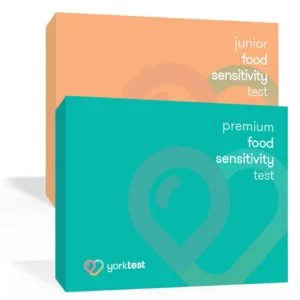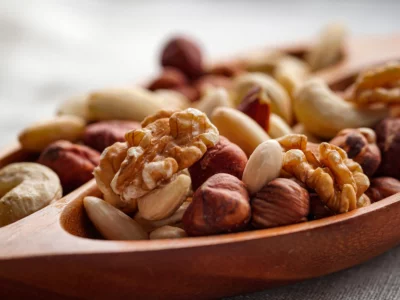Updated for 2024: Daily fatigue is a common problem affecting many Americans. In fact, 38% of Americans have reported low levels of energy. A lack of energy can affect productivity and mood, leading to problems like burnout. According to Deloitte, this problem is even worse for working individuals, with 77% of professionals reporting feeling burned out as a result of their current jobs. But surely it doesn’t have to be this way? Surely, there are ways to boost energy and feel better…?
Quality rest is crucial to recovering from exhaustion and preventing things like burnout. It’s also important to note that not all rest is quality rest. Giving your rest routine — including your sleeping habits and self-care — a makeover can help boost your mood and increase your overall quality of life. Many of our daily energy booster tips can help improve other aspects of your life, relieve stress, and give you more healthy coping mechanisms.
Before digging into some of our fantastic natural energy boosters, we do have a caveat: that being we won’t include simply getting more sleep as a tip. Unless you live under a rock, you will know that getting more sleep normally equates to a nice energy boost! However, we think this point is over-utilised, so while getting more sleep is no doubt beneficial to your energy levels, we want to focus on other ways to get your energy back.
So if you find yourself frequently saying, “Why am I tired all the time?” and “I don’t have the energy today“, it’s probably time to address your daily habits, starting with our 7 ways to boost your energy below:
1. Drink More Water
Surprisingly, one of the main effects of dehydration is a lack of energy. This is less surprising when you realise that mild dehydration symptoms often go unnoticed.
Dehydration is also incredibly common. According to the National Library of Medicine, 75% of Americans are chronically dehydrated — whether due to hot weather (after all, certain states are pretty hot), increased physical activity, or a reduced water intake.
The average adult should drink between four to seven pints of water — about 135 ounces — a day. You may have heard that eight glasses a day is sufficient, and it might be for your body type. However, the most important thing to do to stay hydrated is to simply drink whenever you feel thirsty. You should also drink more plain water instead of things like juices or caffeinated beverages. Staying properly hydrated can reduce daytime fatigue, boost your mood, and improve your ability to absorb nutrients.
2. Cut Down on Caffeine
Have you ever asked yourself, “Why am I tired in the morning but more energetic at night?” Well, it could be because you are over-caffeinated. Being over-caffeinated can make you more tired, and cause inconsistent energy throughout the day. While it is a myth that caffeine has significant diuretics or dehydrating properties, cutting back on it over time can help regulate your energy levels. America runs on coffee, with around 400 million cups of coffee consumed a day, which means the average American coffee drinker consumes around 3 cups a day. So cutting down on caffeine can be easier said than done, especially when coffee isn’t the only caffeinated drink you have to worry about.
Caffeine can come from a variety of places, including:
- Coffee and tea;
- Energy drinks;
- Chocolate and chocolate-flavored foods;
- Chewing gum.
Ingesting too much of any of these in one day can cause energy spikes and crashes, which can increase daytime sleepiness. While you don’t have to give up your morning cup of Joe, try replacing your second or third cup with water, or switching to decaffeinated alternatives.
3. Eat Healthier
A healthy diet has several benefits, including being one of the best ways to increase energy. Certain foods can boost your mood, health, and energy, while others can make you feel fatigued. Eating highly nutritious meals daily helps improve your overall health, boost your immune system, and improve digestion. All of these factors have an impact on your energy levels throughout the day. Certain foods can help boost your energy more than others. These include:
- Bananas;
- Oatmeal;
- Yogurt;
- Beans;
- Eggs.
Being properly hydrated alongside eating well is a healthy habit to get into when looking to boost your energy levels. It may be worth ensuring you have ample drinks available during your nutritional meal times.
4. Cut Out Problem Foods
As mentioned, certain foods can be problematic — both for digestion and energy. Foods such as those high in sugar can cause a crash in energy levels, and incredibly heavy foods that take a long time to digest can make you feel fatigued.
Additionally, food sensitivities can contribute to fatigue, and cause discomfort that may affect your mood. Often, these issues can go undetected or develop later in life, so it’s beneficial to examine your diet for any latent sensitivities. You can do an elimination diet to test for sensitivities or visit an allergist.
5. Drink Less Alcohol
Alcohol is a depressant. It affects sleep quality and overall energy levels. Accompanying this is the fact that Alcohol may make you feel drowsy or irritable — both during and after consumption. Increased alcohol intake can also make you dehydrated, additionally contributing to unwanted low-energy side effects.
Drinking in moderation can help you avoid unwanted side effects of alcohol, including fatigue. The Centers for Disease Control Prevention (CDC) defines moderate drinking as two or fewer drinks in a day. Additionally, the National Institute on Alcohol Abuse and Alcoholism (NIAA) defines heavy drinking as more than 14 drinks per week. Limiting your drinking can help you avoid the negative long-term effects caused by alcohol use, as well as being an important daily energy booster.
6. Exercise Each Day
Exercise has several benefits for general health and wellness, including weight management, mood regulation, and mobility. This may be obvious. However, it is less well-known that regular physical activity can actually boost your energy levels over time, especially when it comes to work-related fatigue. Mayo Clinic recommends that you should be getting in at least 30 minutes of moderate exercise every day. This could be:
- Going to an exercise class
- Taking your dog for a walk
- Biking your commute
- Following a fitness video
- Practicing yoga
You may need more or less heavy exercise depending on your fitness goals and ability. Exercise is a great tool for stress relief, which, by proxy, also helps improve fatigue.
7. Practice Stress Relief
Have you ever laid awake at night, tossing and turning, with your mind racing and struggling to get to sleep? Stress can wreak havoc on numerous aspects of your life, including your energy levels.
Stress can cause feelings of tiredness, particularly when it comes to work. This stress can sometimes be subconscious, and hard to identify. It can also be called “Burnout†when it appears only in reaction to a certain activity. Practicing stress relief daily is important for both your mental and physical health. Stress relief doesn’t have to be complicated or expensive. Easy, at-home stress-relieving techniques include:
- Meditation;
- A hot bath;
- Using essential oils, like lavender;
- A foot or hand massage;
- Gentle exercise;
- Unwinding with a show or book.
The most important thing to remember when it comes to practicing stress relief is not what you’re doing, but how you feel. For example, if you don’t like baths, they won’t be very stress relieving for you. Check in with yourself — this is the fastest way to get the most out of self-care.
Fatigue can be frustrating, especially if it’s prolonged. We hope these tips can help you to reduce daily fatigue, boost your energy, and improve your overall quality of life. If none of these tips work for you, talk to your doctor about underlying medical conditions that could be causing prolonged fatigue. For more health and lifestyle tips, be sure check out our latest blogs. At Yorktest, we pride ourselves on helping you live the best and most fulfilling life.











